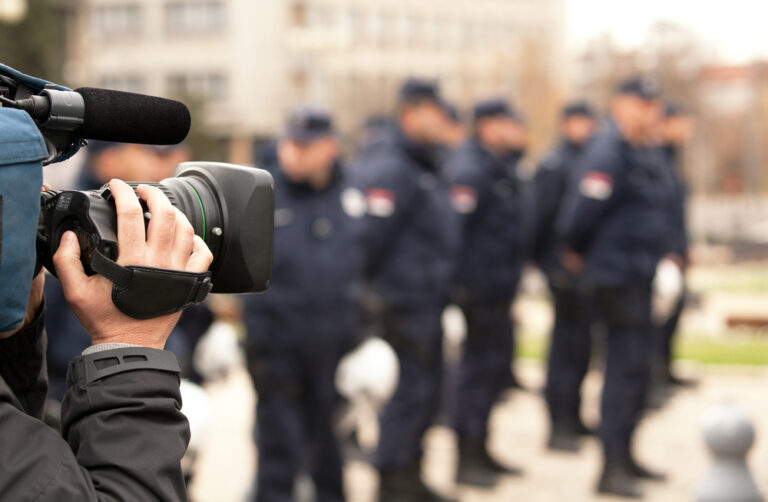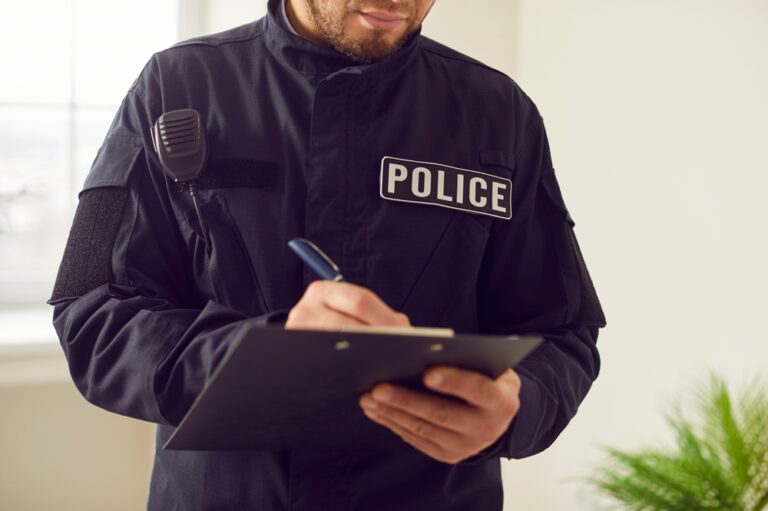
Police Tape 101: Everything You Need to Know
Police tape, commonly known as crime scene tape, is an important tool used by law enforcement to secure…

Law enforcement officers have a very difficult job, and the lines are not always clear.
So if you want to join the police force, you need to ask, what is considered police misconduct?
Otherwise, you would be vulnerable to civil lawsuits and criminal penalties due to wrongful arrest, selective enforcement, and even police brutality.
More importantly, you wouldn’t be able to follow the process of law, which is for you to serve and protect.
There are different examples and forms of police misconduct.
However, before we get to them, let us take a closer look at their general definition.
The term police misconduct covers a wide range of actions involving law enforcement officers and agents of the police force.
It applies to actions that go against the guidelines of law enforcement agencies and break one or more laws.
So if a police officer commits severe police brutality, false arrest, or sexual misconduct, the victim of police misconduct can file civil lawsuits.
Aside from a civil rights lawsuit, they can pursue other forms of remedy, including criminal penalties, monetary damages, or internal affairs complaints.
At this point, you are probably wondering what precisely false arrest, excessive force, and other forms of police misconduct mean.
Let’s dive deeper into each one of them.
In this type of police misconduct, the police officer compels someone to stay or go somewhere forcibly without legal authority.
It means there is no arrest warrant or the arrest warrant is invalid.
While police officers can make an arrest without a warrant, they must have probable cause.
The person involved must have committed a felony or a crime in the presence of the police officer.
Otherwise, it is a violation of their constitutional rights, and that person can sue the police for misconduct.
Aside from unlawful arrests, the law protects people from unlawful stops and searches.
It is where an officer pulls someone over and searches that person’s car without probable cause or a valid search warrant.
To illustrate, if a car is swerving wildly on the road, it’s reasonable for an officer to think that the driver is drunk.
They can ask the driver to stop, but they cannot search the car without a warrant or any evidence of drinking.
However, if they see bottles of beer on the seat or paraphernalia for illegal drugs, they can go ahead and search the vehicle.
If you follow major media outlets like CBC News or ABC News, you sometimes hear about the use of excessive force.
There are even times that killings by police make the headlines.
Of course, these incidents are one form of constitutional violation that goes against police department rules and regulations.
In these cases, the victim or the family of the victim can file a civil rights lawsuit.
Misconduct does not have to lead to killings by police or other similarly severe situations.
For instance, if a member of a law enforcement agency commits perjury, it qualifies as misconduct too.
It includes lying during a trial or in police reports and affidavits.
What makes these actions so harmful is that they often result in wrongful convictions.
Selective enforcement of the law based on race is another form of misconduct that goes against the rules of the police department.
It violates the constitutional rights of the person involved, specifically the Fourth Amendment and the Fourteenth Amendment.
Members of law enforcement agencies should implement the law equally and without bias.
Coercive sexual conduct happens when a police officer forces someone in custody to engage in sexual contact with them.
Aside from sexual contact, this type of misconduct includes groping or touching.
In this type of police misconduct, law enforcement officers use different surveillance methods to monitor individuals or groups without legal authority.
It is a form of constitutional violation that threatens a person’s privacy and security.
The majority of the members of the police and other security forces do their jobs well and comply with the law.
Sadly, there are instances where this is not the case.
You’ve probably heard about victims of police misconduct on the news, whether in the form of discriminatory harassment, police shootings, or assault.
In some cases, the issue goes as high up as the police chief.
Below are some well-known examples of police misconduct.
One of the most prominent cases of severe police brutality in recent memory is the death of George Floyd.
Video cameras captured how officers violated several rules on police use of force while arresting the man.
It includes numerous civilian videos taken by concerned bystanders and passersby.
One of the most compelling scenes is where an officer had his knee on Mr. Floyd’s neck, who was lying face down.
This went on for about eight minutes, even after Mr. Floyd was apparently unconscious already.
The city government eventually agreed to pay the family compensatory damages and convicted the officer involved.
Also, as of this year, police are not allowed to use techniques or transport methods that carry a substantial risk of positional asphyxia.
Eddie Martins and Richard Hall were two officers involved who arrested a young woman for possession of marijuana.
However, instead of going through the proper procedures, they loaded the woman in a van and raped her.
They also threatened her with charges of crimes if she did not cooperate.
The officers were charged with coercion, kidnapping, rape, sexual assault, and a slew of other criminal offenses.
Walter Scott was a black motorist who an officer stopped for what was supposedly a broken taillight.
However, instead of handing over a ticket, the two men got into a physical altercation.
Mr. Scott eventually tried to flee the scene, but he was unarmed.
The police officer then proceeded to shoot Mr. Scott several times from behind, killing him.
While Mr. Scott was lying on the ground, the office dropped his taser beside his body in an attempt to plant evidence.
The officer was convicted and is now serving 20 years in prison.
Officer Maldonado was on patrol when he saw a large amount of cash in a car that he pulled over.
He decided to steal it, which is a crime in and of itself.
When the motorist reported the theft to the police department, Officer Maldonado offered a bribe to try and drop the charges.
So on top of theft, he was also convicted of attempting to tamper with a witness.
He was fired from his job as a police officer and sentenced to two years in prison.
Philando Castille was driving one day with his girlfriend and her daughter when an officer pulled them over.
Inside the vehicle at the time was a legal firearm, so Mr. Castille informed the officer of the situation.
The officer instructed him not to reach for this weapon, and he agreed.
He then told the officer that he would reach for his identification so he could present it.
However, the officer was apparently not listening because as Mr. Castille was reaching for his ID, the officer opened fire on him.
He was killed defenseless in front of his girlfriend and her daughter.
This is one of the most grievous cases of police misconduct on record, as the officer was later acquitted of manslaughter charges.
John Spencer was the primary suspect in a homicide case that the New York State Police were investigating.
However, the officer in charge thought there was insufficient evidence to pursue it.
In his desire to prosecute Mr. Spencer, the officer decided to lift the suspect’s fingerprints from when he was booked.
The officer then claimed later that these prints were from the crime scene.
He was charged with fabricating evidence and was sentenced to 30 to 84 months in prison.
We have discussed at length what is considered police misconduct and talked about some well-known examples.
At this point, you should have a clear understanding of what you can and can’t do when you become a police officer.
It is essential to keep these things in mind until they become ingrained in every fiber of your being.
So when you find yourself in a similar situation, doing the right thing will come naturally.

Police tape, commonly known as crime scene tape, is an important tool used by law enforcement to secure…

The police are called daily regarding various incidents of public interest. It is our responsibility to provide the…

Many police officers experience terrible, traumatic events in the line of duty. A significant number of police officers…